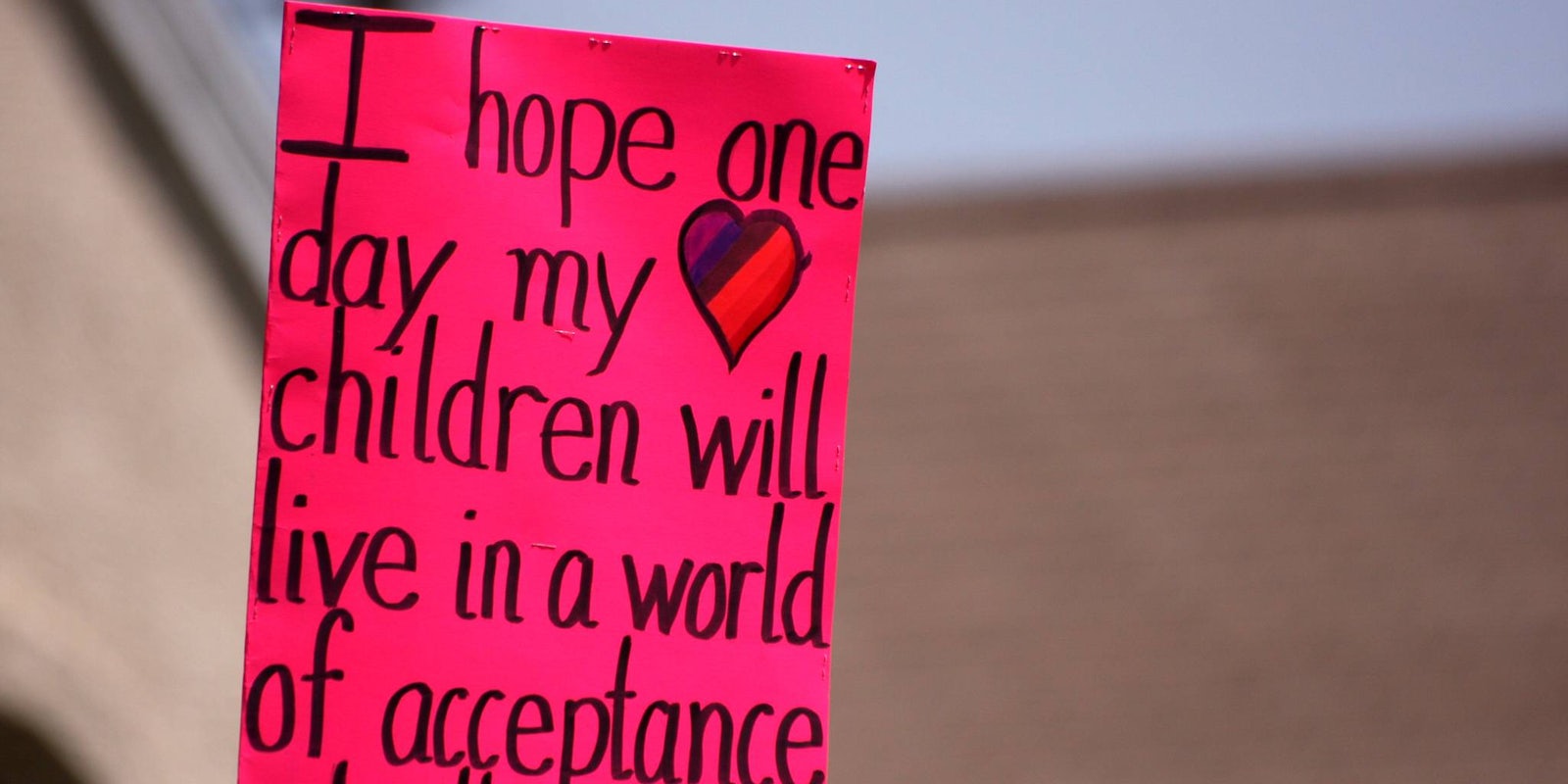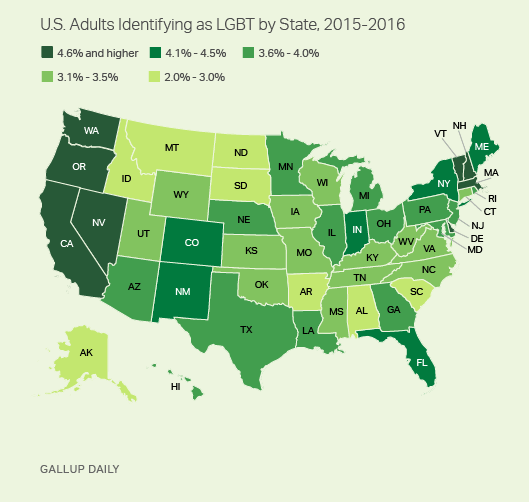According to a recent poll from Gallup, America is only getting more and more openly queer, though there are significant differences in where the “out” LGBTQ population lives.
D.C. has the highest percentage of self-reported openly LGBTQ people in the country, coming in at 8.6 percent. However, because D.C. is technically not a state, Vermont actually takes the number one spot state-wise, with an openly queer population of 5.3 percent.
Massachusetts, California, and Oregon share second place with 4.9 percent, and Delaware, New Hampshire, Washington, New York, and Maine round out the top 10.
Perhaps unsurprisingly, states with the lowest population of openly queer people include conservative states like South Dakota at 2 percent, North Dakota at 2.7 percent, Idaho at 2.8 percent, and South Carolina and Montana both with 3 percent.
Gallup determined its statistics by looking at state-level estimates starting in 2012, then again in 2015 and 2016. In total, it conducted over 400,000 interviews asking adults 18 and over if they openly identified as LGBTQ.
As always is the case when talking about sexual orientation and gender identity, it’s important to keep in mind that not everyone is open about their orientation. Queer people who are not “out” in every facet of their lives, or do not feel comfortable coming out via a national survey, are still queer; they’re just not necessarily reflected in these percentages.
For LGBTQ people living in states with more anti-queer policies, or simply with less legal protections, coming out can have serious consequences. In some states, it is still legal to fire someone for being gay or to deny housing or evict someone who identifies as transgender.
Social acceptance can make a big difference in feeling comfortable in coming out, too. For instance, 92 percent of surveyed New Englanders report approving of same-sex relationships. In contrast, a third of Southern millennials disapprove of same-sex couples.
This might be one of the reasons why, despite the fact that more people are openly LGBTQ, there is a big drop-off in percentage in some chunks of the country. Even if someone isn’t worried about losing their job or home, social ostracization and family estrangement are significant concerns that can keep people in the closet.



